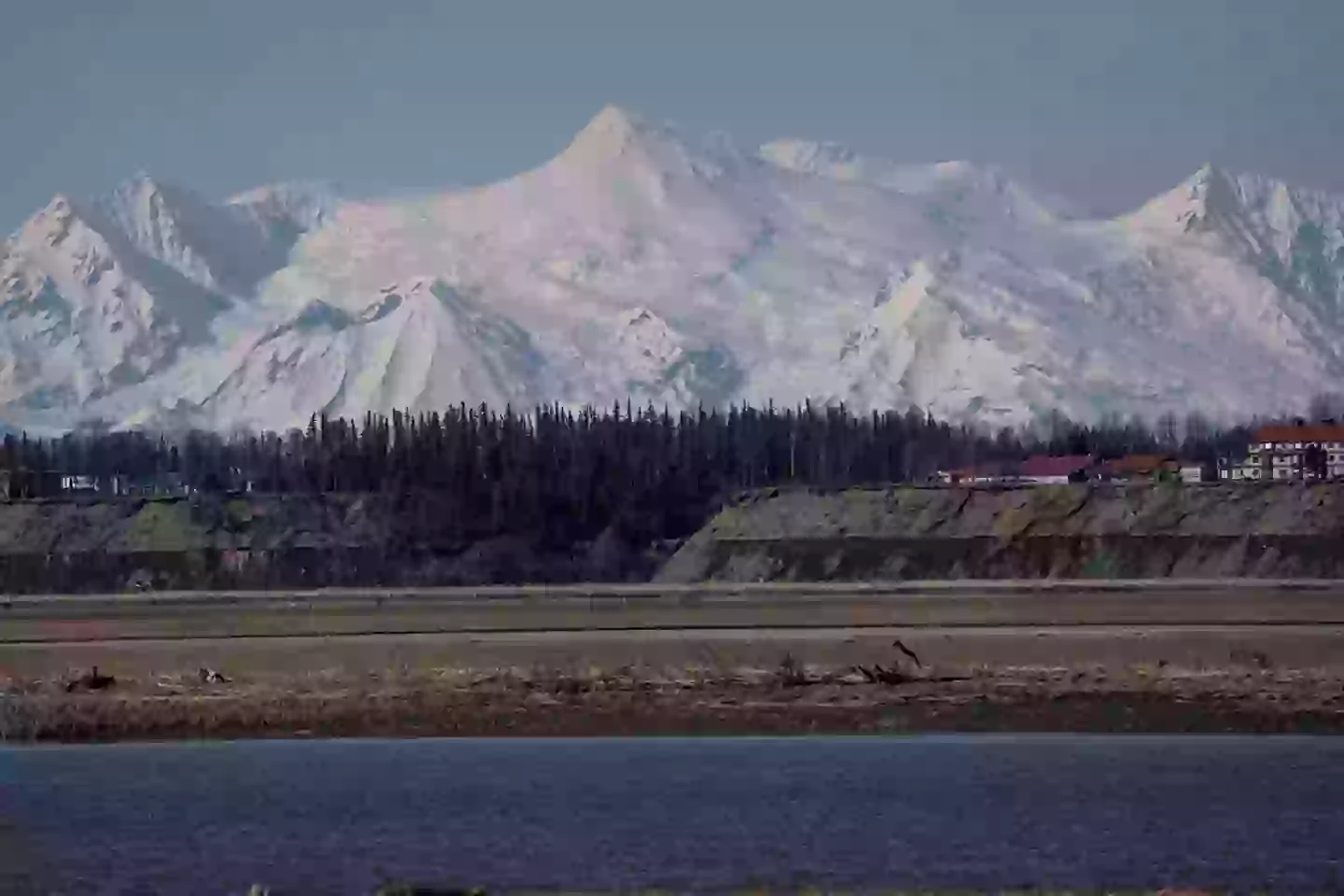
Hundreds of thousands of Americans are bracing themselves for the worst as scientists predict a nearby volcano is set to erupt.
There are as many as 169 volcanoes that are deemed as 'active' across America's 50 states, but it is Alaska's 11,070-ft-high Mount Spurr that looks ready to blow, close to the state's largest city, Anchorage.
The volcano, which is just under 2,000-ft taller than the Yellowstone supervolcano, can be seen on a clear day by Alaskans living 81 miles away in the coastal city.
Advert
A report by the Alaska Volcano Observatory (AVO), the governing body that frequently studies 90 of the estimated 140 volcanoes believed to be situated on the state, found that there had been more than 100 earthquakes taking place underneath Mount Spurr each week between February and March.
While also stating that there had been more than 3,400 earthquakes to have taken place in and around the volcano since April last year.
Matt Haney, the scientist leading the AVO, explained what an eruption could look like while speaking with Alaska Public Media.

Advert
“A Spurr eruption similar to those in 1953 and 1992 would likely not be audible for people in Anchorage but would be audible if one were close to the volcano. However it wouldn't be advisable to be that close,” the scientist said.
"Ash-producing eruptions can produce volcanic lightning in the ash cloud due to friction between volcanic ash particles, and that lightning produces thunder, which may be audible at further distances.
"More often than not, we have explosive eruptions that fragment magma and shoot ash, you know, 50,000 feet into the atmosphere."
In 1992, Mount Spurr erupted three times, in June, August and September, while 39 years before then one explosion was recorded.
Advert

Haney added: "On August 18, 1992, which was the second of the three explosions, the winds were blowing to Anchorage that day, and the ash was carried over Anchorage, and ashfall ensued on Anchorage."
It has been almost 43 years since the last major eruption, and it would likely mean ash pouring down on Anchorage and its surrounding communities.
Alaskans who live close to Mount Spurr have began preparing for the imminent eruption by stocking up on face masks, gas masks, protective goggles, latex gloves and plenty of water.
Advert
Aaccording to the International Volcanic Health Hazard Network (IVHHN), volcanic ash can cause lung diseases if inhaled, and can cause major health issues to those with asthma, as well as irritating your eyes, nose and throat.